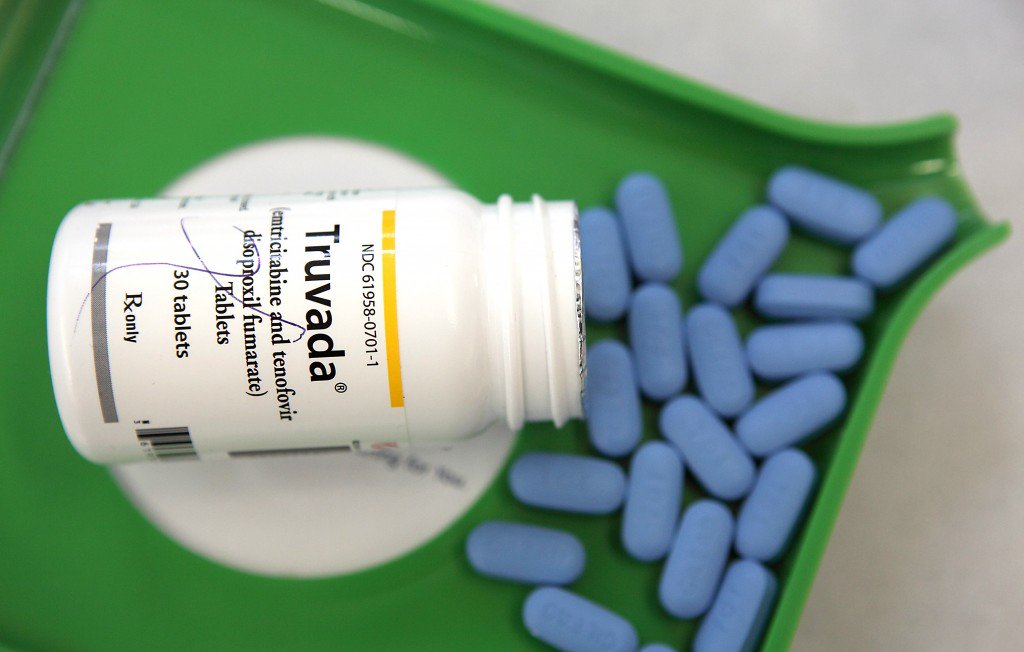Attitude clinic: “Is PrEP safe to use?”

 Health expert Dr Christian Jessen (pictured) contributes a monthly column to Attitude Magazine, answering questions readers are sometimes afraid to ask their doctors: Questions about gay men’s health ranging from STIs to relationship troubles, HIV prevention to mental health.Now, Attitude Clinic will appear online too. Read on for our first instalment…There’s been a lot in the news recently about preventative HIV drugs such as PrEP and Truvada, but do they really prevent HIV and are they safe to use?
Health expert Dr Christian Jessen (pictured) contributes a monthly column to Attitude Magazine, answering questions readers are sometimes afraid to ask their doctors: Questions about gay men’s health ranging from STIs to relationship troubles, HIV prevention to mental health.Now, Attitude Clinic will appear online too. Read on for our first instalment…There’s been a lot in the news recently about preventative HIV drugs such as PrEP and Truvada, but do they really prevent HIV and are they safe to use?
– Harrison, London
DR CHRISTIAN: Firstly, the term ‘PrEP’ stands for ‘pre-exposure prophylaxis’, which is a new HIV prevention method, while Truvada is one of the PrEP drugs currently available in the US and currently undergoing trials in the UK. PrEP involves taking antiretroviral drugs in situations where you feel you may be at risk from contracting the disease. The drugs work by preventing HIV from establishing a permanent hold or infection in the body. It is highly effective but it has to be taken consistently in order for it to be effective. So far, there have been no significant safety concerns with PrEP medication. The most common side effects are an upset stomach, loss of appetite and sleep problems but these tend to resolve after a month of regularly taking. There have been concerns about drug resistance developing in people on PrEP should they become HIV positive at some stage, but new testing methods and sensible clinical advice can help avoid this happening.
My boyfriend sweats excessively at the gym, and sometimes if it’s hot he comes home smelling awful. What can cause this and how can it be helped?
– Jordan, Cork
DR CHRISTIAN: Let me just clarify this: Sweating at the gym is an entirely universal thing. I would be more concerned was he not sweating at the gym. Sweating is a sign of an effective workout but combating it in a medical sense is tricky. I think the simple answer is to buy him some good, sweet-smelling deodorant and to encourage him to shower straight after working out rather than waiting until he gets home to do so. Regularly wash gym gear too as sweat, along with dead skin cells, can cling to the material and allow the smell to linger.
Recently I’ve been catching my boyfriend watching porn on quite a regular basis. Should I be worried that his online habits could affect his sex drive and our sex life?
– Matt, Edinburgh
DR CHRISTIAN: Unfortunately I would say that only you can answer this. If your sex life does seem to be affected by your partner’s solitary activities then clearly this is an issue you may want to talk to him about. However, I will say that masturbation and watching porn are completely normal and harmless pastimes for most men. Of course, there is cause for concern if watching porn becomes a regular, frequent or obsessive habit. Porn becomes problematic when it directly interferes with you and your partner’s sex life or daily routine. If you are not able to have sex without watching porn – or would simply prefer to – then this could be a sign of a more serious underlying problem. It is worth seeking specialist advice when these kinds of problems arise, so to speak.
The probe: Body Dysmorphic Disorder

DR CHRISTIAN: Body dysmorphic Disorder (BDD) is a personal subject for me as I suffered from it myself for a long time. An anxiety disorder related to body image, BDD causes the sufferer to believe they need to conceal non-existent flaws. Often linked to low self-esteem, bullying and perfectionism, men with BDD can spend many hours thinking negatively about their appearance, build or body size, which can often lead to eating disorders or obsessive fitness regimes. My own BDD was linked to being a skinny teenager at school so I started aggressively working out. Many people do not seek help because they think it will be shrugged off as a trivial vanity. This can result in depression in some cases. Treatment typically involves psychotherapies such as cognitive behavioural therapy or medication. I would always advise specialist support from a doctor who is well-versed in the condition.
Dr Christian is on Twitter: @doctorchristian
